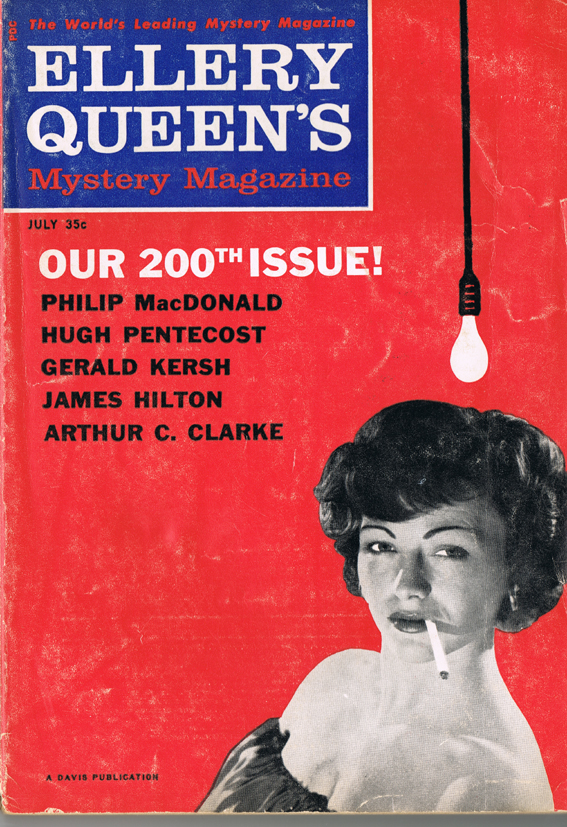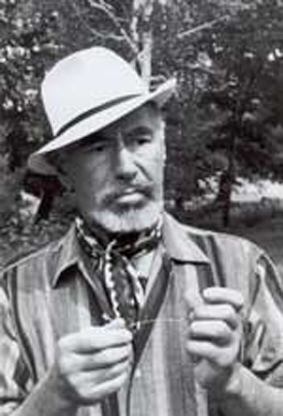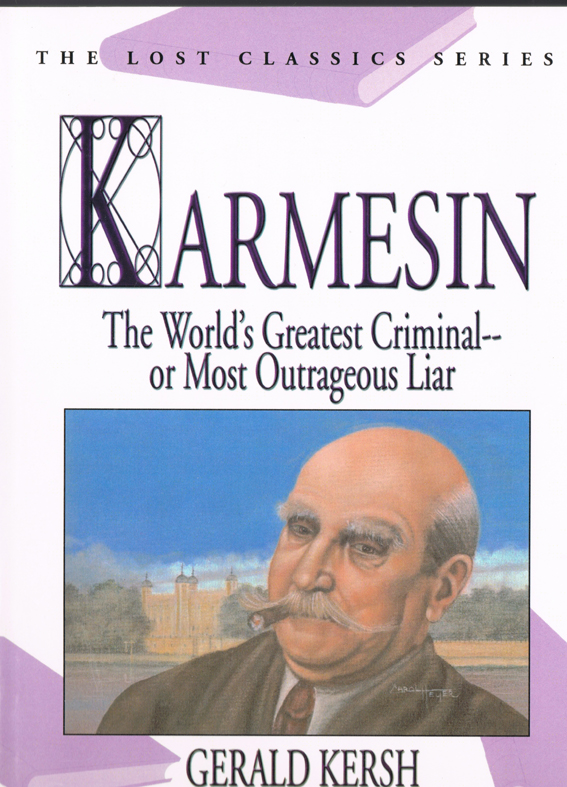Best Is in the Eyes of the Reader
by Bertil Falk

film poster, 1934
|
The same is true about that phenomenal story “The Green Door” (1906) by O. Henry. Over the years its fame has faded in the light of later stories. My question is: are there any “best” stories at all?

issue 200, July 1960
|
Checking back on the annual awards made for the best detective-crime-mystery short story of 1954, we discovered that “The Thief Who Played Dead” seems to have been completely ignored. For example, the Mystery Writers of America did not even nominate the Gerald Kersh story for the short-story “Edgar” prize of 1954; it was neither a winner nor a runner-up. For another example, David C. Cooke failed to include the story or even to mention it in his anthology The Best Detective Stories of the Year, covering stories published in 1954.

Gerald Kersh
|
If we look at how the best novels, stories etc. are selected, we find much evidence for the editorial statement made by Ellery Queen’s Mystery Magazine. It applies not to the status of the story in question but more generally to such things as annual awards.
To begin with, someone must nominate candidates in a competition. Obviously, nobody who was eligible to make nominations had read Gerald Kersh’s story in The Saturday Evening Post. Or, if someone had read it, that person did not consider it fit for an award.
Thus we must ask ourselves: who makes these nominations, and who votes for the titles on the list? Are these people selected at random? Are they members of a society or an academy? Or do they belong to a certain kind of fandom?
Further, is it possible to select the best story of a certain year by means of a process that looks like the popular vote in a democratic election? Can a majority of any electorate — or a minority as in certain U.S. presidential elections — decide what story is the best?
The late Jerry Weist wrote an excellent book about Ray Bradbury. At a convention in Canada it lost to a Canadian book. We have a word for that in Swedish: vänskapskorruption (‘friendship corruption’). And it is not limited to science fiction conventions in Canada. The tsunam-like wave of people voting for stories written by their fellow countrymen and friends is rampant everywhere.
And have you discovered how often obscure awards are marketed as “prestigious.” If an award is prestigious in the eyes of a majority of people, then such awards as the Nobel Prize, Le Prix Goncourt or the Pulitzer Prize do not have to be presented as prestigious. When an award has to be called “prestigious,” someone probably wants us to believe it is.

|
As for Gerald Kersh, his most renowned novel Night and the City was turned into a noir film in 1950, starring Richard Widmark. And it was remade in 1992 with Robert de Niro. As for Karmesin, Kersh wrote 17 stories about this master criminal. They were all collected, edited and introduced by Paul Duncan and published by Crippen & Landru in 2003 as a part of its The Lost Classics series.
And by the way, “The Thief Who Played Dead” is not bad.
Copyright © 2011 by Bertil Falk

